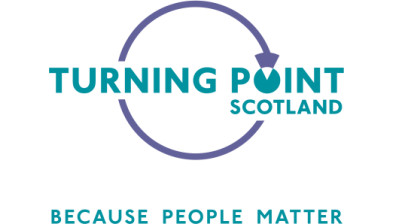Family of homeless man who died in charity accommodation fail in damages claim
The family of a homeless man who died hours after being offered accommodation by a charity have had an action for damages against the support provider dismissed.

Relatives of Francis Hughes, 34, sued Turning Point Scotland on the basis that the charity “breached its duty of care” in dealing with him after he arrived at the “Link Up” service in Glasgow, but a judge in the Court of Session rejected the claim.
‘Alcohol detox’
Lord Clark heard that Link Up provided accommodation and support services for people who were homeless or sleeping rough and experiencing a crisis, including as a result of addiction to alcohol.
On 1 July 2013 at approximately 12.40pm Mr Hughes - accompanied by his alcohol support worker - attended at Link Up with a view to using the service, which he had used on previous occasions.
An initial assessment of Mr Hughes was carried out by Stephen McCourtney, a project worker with the charity, following which Mr Hughes was admitted.
Mr McCourtney also undertook a clinical institute withdrawal assessment (CIWA) for alcohol, the results of which indicated that Mr Hughes required alcohol detoxification by use of medication such as diazepam or librium.
Mr McCourtney telephoned a GP, Dr Poole, who was one of the charity’s voluntary medical officers (VMO), to request detox medication for Mr Hughes, but the doctor was unavailable to answer the call.
He made two further calls, one at around 3pm and another at around 4.15pm, and left messages for the GP, but Dr Poole was unavailable.
Mr Hughes was given a bedroom in the “crisis residential unit” (CRU) within the building at approximately 3.30pm.
One of Mr McCourtney’s colleagues checked on Mr Hughes at 4.30pm and 5.30pm, and on both occasions he was noted as being asleep.
Dr Poole called back at around 5.30pm to say that a prescription had been faxed to a chemist shop near Central Station in Glasgow, following which Mr McCourtney left the charity’s premises to collect it.
But at around 6.30pm Mr Hughes was found motionless on the bed and soon afterwards was pronounced dead, with the cause of death certified as “suspected seizure related to alcohol withdrawal”.
‘Assumed responsibility’
Mr Hughes’ father, two sisters, two brothers and son raised an action seeking damages from the charity in terms of the Damages (Scotland) Act 2011 on the grounds that the charity, and separately Mr McCourtney - for whose actings the charity was vicariously liable - “failed to exercise reasonable care” in their dealings with and treatment of Mr Hughes, which failures were alleged to have caused his death.
The family’s position was that the charity owed a “common law duty of care” to not assess or admit a person such as Mr Hughes to use its Link Up service.
Alternatively, there was a duty to provide a “safe system” for the admission and treatment of him.
Separately, Mr McCourtney also owed a duty of care to Mr Hughes, which had been breached by the charity not having prepared and followed an appropriate protocol or system for dealing with persons such as Mr Hughes, for whose care it had “assumed responsibility”, and by Mr McCourtney having failed to obtain medication and having failed to call an ambulance, having regard to the CIWA score and the lack of immediate access to medication.
It was submitted that the charity was “clearly” in breach of its duty of care, as it did not have a protocol advising staff members which people could be safely admitted to the service for withdrawal from alcohol, and failed to comply with its offer of a “safe and comfortable detox”.
In terms of causation, it was argued that if Mr Hughes had not been admitted to Turning Point, he would either have simply continued drinking as he normally did or, if he did not and went into withdrawal, he would have gone to A&E at Glasgow Royal Infirmary for help.
Had Mr Hughes been referred to hospital, on the balance of probabilities he would not have died either from a seizure or from cardiac arrhythmia, as he would have started to receive medication to control his detoxification.
The relationship between Turning Point and Mr Hughes was one of “close proximity” and it was “reasonably foreseeable” that if it did not provide him with a safe and comfortable detox, he would suffer harm, it was submitted.
‘No breach of duty’
However, the judge ruled that the charity had not assumed responsibility for Mr Hughes’ welfare, and thus there was no breach of duty of care.
In a written opinion, Lord Clark said: “The defender (charity) did not have control over Mr Hughes in the same manner as a hospital. The defender simply did not have medical and nursing staff of various ranks and roles, and medication, to be taken as having held itself out to provide a safe and comfortable detox. There is no basis in the evidence for concluding that Mr Hughes was either advised that the defender had such resources or could reasonably have understood or believed that they had them.”
The charity assumed responsibility to provide its services to Mr Hughes, including the provision of a bed, to request medication from a VMO and, if it was prescribed, to administer it to Mr Hughes, who fully aware of the nature and scope of the services which were to be provided, having recorded his agreement by signing certain documents.
The judge continued: “I infer that he relied upon the defender, but can only have done so to the extent of the responsibility assumed by it. I reject the pursuers’ (family’s) position that the defender contracted with Mr Hughes to provide a safe and comfortable detox.”
In relation to the case against Mr McCourtney, Lord Clark accepted that he owed a duty to exercise reasonable care in his dealings with Mr Hughes.
“However, he added, “the scope of that duty is delineated by the extent to which responsibility was assumed by the defender and the whole context in which the defender and Mr McCourtney operated.”
Lord Clark said: “Having regard to the limits upon the matters for which the defender assumed responsibility, I conclude that there was no breach of duty of the kind contended for by the pursuers. The defender carried out what it had undertaken to do and did so with reasonable care, as discussed below.
“Responsibility was not assumed in respect of any of the so-called system points relied upon by the pursuers. These points were primarily based upon the pursuers’ position that the assumption of responsibility was to provide a safe and comfortable alcohol detox. I have rejected that contention, for the reasons given above.
“I conclude that even if the broader duty of care founded upon by the pursuers was held to exist, it would not have been breached. Nor was there any breach of duty on the part of Mr McCourtney. The defender and its staff reacted reasonably in all the circumstances and took reasonable care in responding to Mr Hughes’ presentation.”
‘Too many unknowns’
On the issue of causation, the judge concluded from the evidence that on the balance of probabilities the cause of death was cardiac arrhythmia, and that even if he had been sent to hospital the administration of diazepam would not have prevented death by that cause.
“In any event,” he said, “the pursuers’ case on causation fails at an even more fundamental level. The pursuers require to establish that but for the alleged negligence the outcome would have been different and Mr Hughes would not have died.
“In terms of the time of death, on the evidence it could have occurred at any time between just after 3.30pm and 6.30pm. The question is whether or not death by a seizure or cardiac arrhythmia would have been avoided if the defender had obtempered the duties which the pursuers say were incumbent upon it.
“There are too many unknowns, having regard to Mr Hughes’ presentation as stated by Mr McCourtney, including when he would have been reviewed in A&E, when he would have been assessed, when he would have been tested and monitored for any cardiac issues, and whether and if so when he would have been given diazepam.
“I am therefore unable to conclude that if the defender had complied with its alleged duties in respect of not admitting Mr Hughes or phoning an ambulance and seeking to get him to hospital, he would have been treated with appropriate medication prior to the time of his death. The same applies to testing and monitoring which would have discovered and allowed prevention of cardiac arrhythmia.”








